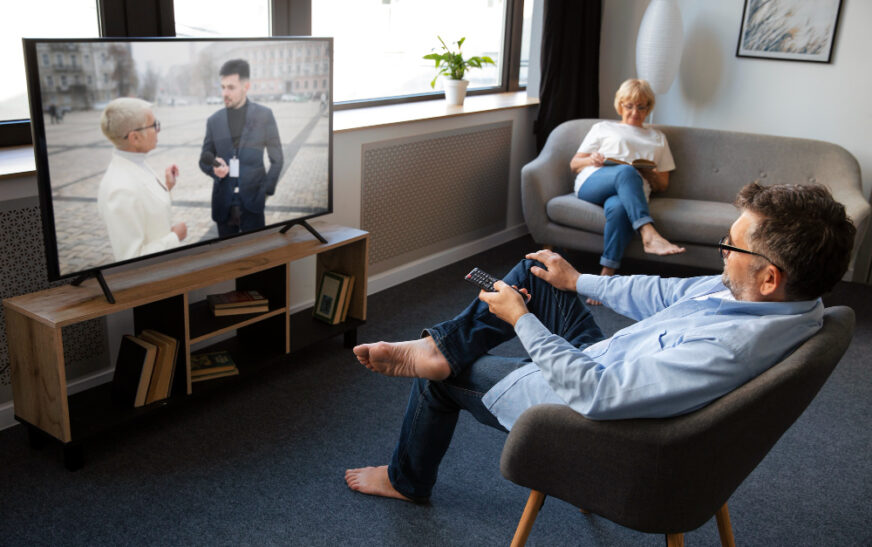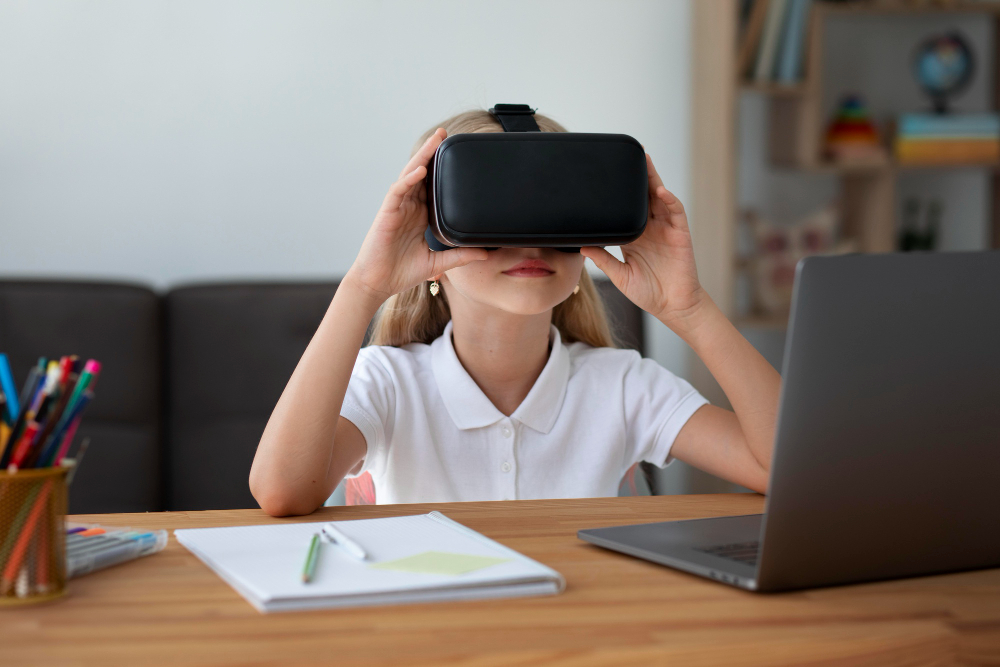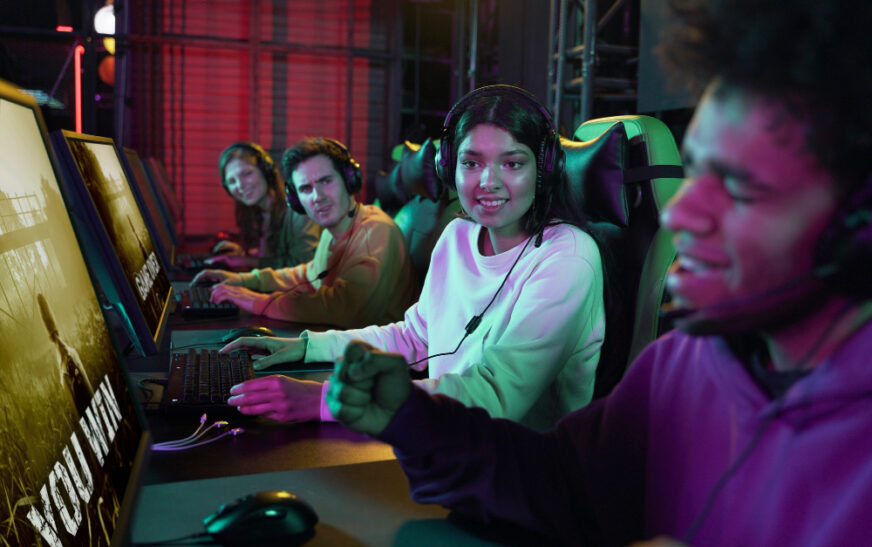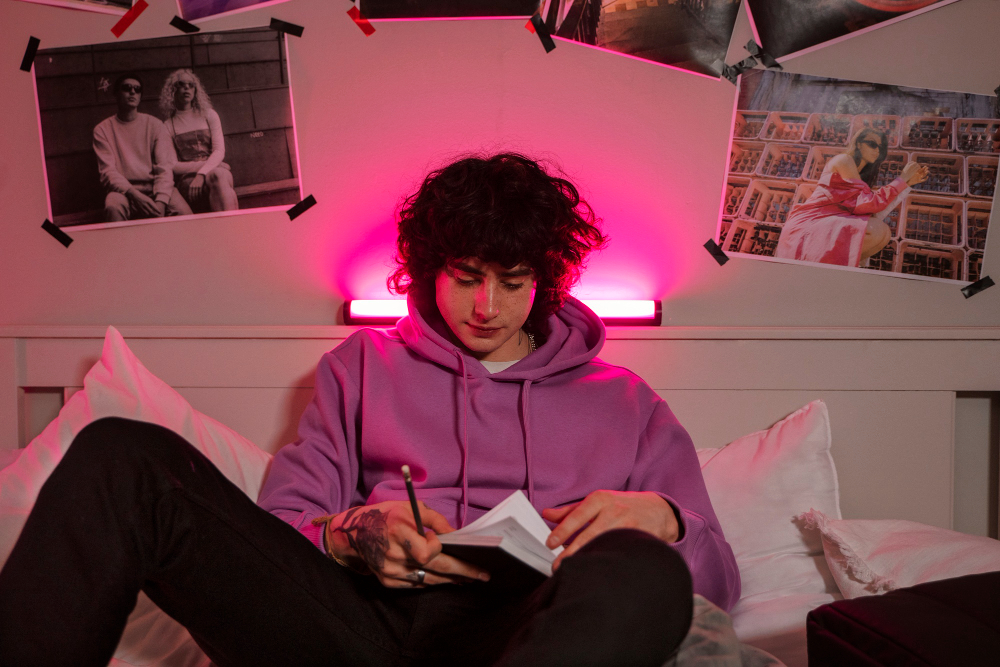Have you ever found yourself glued to the screen, watching a reality show filled with drama and manufactured conflict? You’re not alone. Reality TV, despite its sometimes questionable content, remains a dominant force in the entertainment industry. But what is it about these shows that keeps us coming back for more? The answer lies in the clever use of social psychology, a field that explores how people think, feel, and behave in social situations.
In this blog post, we’ll delve into the fascinating world of reality TV and uncover the psychological tricks producers use to hook viewers. By understanding these techniques, you can become a more conscious consumer of this type of entertainment.
The Power of Voyeurism
Imagine being a fly on the wall, observing the intimate lives of strangers. This is the core appeal of many reality shows. Voyeurism, the act of deriving pleasure from observing the private lives of others, is a fundamental human drive. Reality TV satiates this desire by placing us in the shoes of an invisible observer, privy to arguments, emotional breakdowns, and even romantic encounters. Shows like Big Brother and Keeping Up With The Kardashians exploit this voyeuristic tendency, blurring the line between private and public life.
Social Comparison: The Grass Isn’t Always Greener
Social comparison is a natural human behavior where we compare ourselves to others to assess our own standing. Reality TV cleverly uses this phenomenon to keep us engaged. We compare ourselves to the contestants, often feeling superior to their bad decisions or relieved that our lives aren’t quite as chaotic. Shows like The Bachelor and Ex on the Beach showcase a world of manufactured drama and superficial relationships, making viewers feel better about their own situations.
The Need for Belonging: Escapism and Community
Reality TV can also fulfill our need for belonging. By watching others navigate social situations, we gain a sense of connection and belonging. We root for our favorite contestants, gossip about the drama, and participate in online communities dedicated to specific shows. This sense of shared experience fosters a feeling of community, even if it’s virtual. Shows like Survivor and RuPaul’s Drag Race create dedicated fan bases who find comfort and connection in discussing the show’s events.
Cliffhangers and the Zeigarnik Effect
The Zeigarnik Effect posits that unfinished tasks or unresolved situations remain more prominent in our minds than completed ones. Reality TV producers are masters of cliffhangers, leaving episodes unresolved to keep viewers coming back for more. We’re left pondering unanswered questions and wanting to see how the drama unfolds. This creates a sense of anticipation and fuels the need to watch the next episode. Shows like The Real Housewives and Love is Blind rely heavily on cliffhangers to keep viewers hooked and wanting to resolve the dangling plot threads.
The Power of Familiarity and Repetition
Humans find comfort in the familiar. Reality TV shows often follow predictable formats with recurring characters and storylines. This sense of familiarity creates a sense of security and allows viewers to anticipate what might happen next. Additionally, the repetition of catchphrases, locations, and even music can create a sense of nostalgia and comfort, encouraging viewers to keep tuning in. Shows like Shark Tank and American Idol use this strategy to establish a recognizable format and build anticipation.
Scarcity and FOMO (Fear of Missing Out)
Reality TV shows often create a sense of scarcity by portraying exclusive experiences or limited opportunities. This taps into our fear of missing out (FOMO). Shows like The Amazing Race and American Ninja Warrior present challenges and competitions with limited spots or high stakes, making viewers feel the pressure and excitement alongside the contestants. This strategy motivates viewers to keep watching to see who “wins” and what they miss out on by not participating.
Emotional Rollercoaster: The Power of Affect
Emotions are powerful motivators. Reality TV producers understand this and deliberately create situations that evoke a range of emotions in viewers. From laughter and excitement to anger and sadness, these shows take viewers on an emotional rollercoaster. This emotional engagement keeps viewers hooked, wanting to see how the situations resolve and how the characters react. Shows like The Bachelor and Married at First Sight exploit this to create drama and emotional investment from viewers.
The Illusion of Control: Voting and Audience Participation
Many reality shows incorporate audience participation, allowing viewers to vote for their favorite contestants or influence the show’s direction. This creates an illusion of control, making viewers feel invested in the outcome. Feeling like they have a stake in the game further increases viewer engagement and the desire to see their choices reflected in the show’s results. Shows like America’s Got Talent and Dancing with the Stars use voting systems to make viewers feel like active participants.
The Dark Side of Reality TV: When Entertainment Exploits Mental Health
Reality TV thrives on drama, conflict, and emotional manipulation. While these elements can be undeniably entertaining, there’s a growing concern about the potential negative impact of reality TV on mental health, for both viewers and participants.
The Pressures of Fame: Anxiety, Depression, and the Struggle to Maintain a “Reality TV Persona”
Reality TV thrusts ordinary people into the spotlight overnight. The constant pressure to perform, maintain a specific image, and deal with online negativity can be a recipe for anxiety and depression. Contestants may feel obligated to act in ways that are outside their comfort zone or even harmful to themselves, all for the sake of entertainment. Shows like Keeping Up With The Kardashians and The Real Housewives often portray a curated version of reality, creating unrealistic expectations that can fuel feelings of inadequacy in viewers.
Cyberbullying and the Amplification of Negativity
Social media plays a significant role in the reality TV experience. Contestants are often subjected to online harassment and cyberbullying, which can have devastating consequences for their mental well-being. The constant barrage of negative comments and public scrutiny can lead to feelings of isolation, shame, and even suicidal ideation. Shows with heavy audience voting, like The Bachelor and American Idol, can amplify negative sentiment and pit contestants against each other, fostering a hostile online environment.
The Blurring of Lines: When “Reality” Becomes Fabricated Trauma
Reality TV producers often manipulate situations and storylines to create drama. This can involve editing footage in a misleading way, fabricating conflict, or even putting contestants in potentially dangerous situations. The constant pressure to deliver “good TV” can lead to a blurred line between reality and fabrication. This manufactured trauma can be emotionally taxing for participants, who may feel exploited and unable to control their narrative on the show. Shows like Survivor and The Challenge are notorious for pushing contestants to their physical and emotional limits, raising ethical concerns about the show’s impact on mental well-being.
Seeking Help and Prioritizing Wellness
It’s crucial for both viewers and reality TV participants to prioritize mental health.
Viewers: Be mindful of the content you consume. Limit your reality TV intake and diversify your viewing habits. Recognize that reality TV is heavily edited and doesn’t portray a realistic picture of life. If you find yourself struggling with anxiety or depression after watching a show, reach out to a mental health professional.
Contestants: Reality TV shows should prioritize the mental well-being of their participants. Providing access to mental health resources, pre-show counseling, and post-show support are essential steps. Contestants should feel empowered to say no to situations that make them feel uncomfortable or unsafe.
The Future of Reality TV: A Shift Towards Transparency and Authenticity
There’s a growing demand for greater transparency and authenticity in reality TV. Shows that focus on personal growth, positive experiences, and genuine human connection might be a step in the right direction. Additionally, prioritizing mental health support for contestants and promoting responsible social media behavior can help create a more positive and ethical reality TV landscape.
Conclusion
Reality TV can be a form of entertainment, but it’s important to be aware of its potential downsides. By prioritizing mental health and promoting responsible content creation, we can ensure that reality TV remains entertaining without exploiting the well-being of viewers and participants.





















